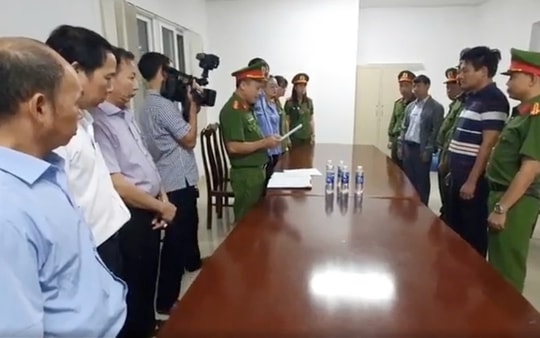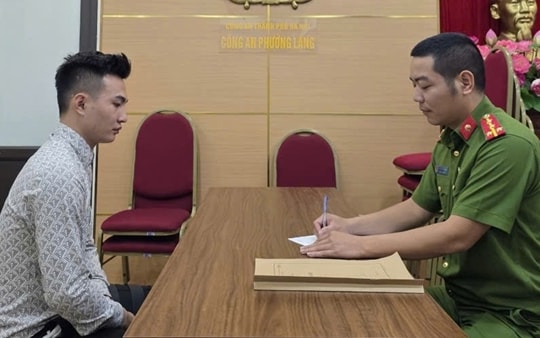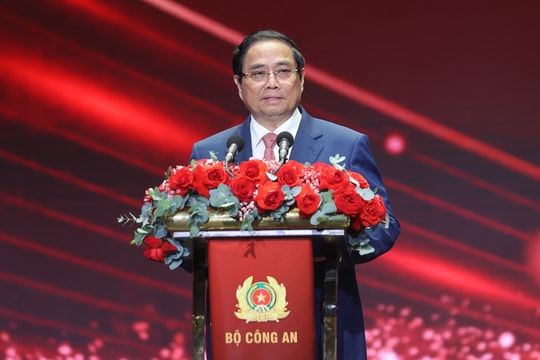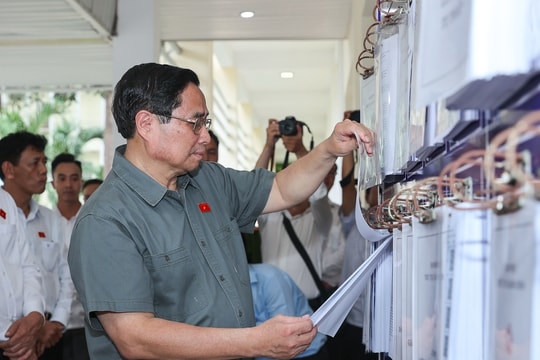Building a public service culture to prevent corruption and negativity
Corruption is a “congenital defect” of power, one of the threats to the survival of the regime. Preventing and combating corruption and waste is a “non-stop” and “unceasing” process with the determination of the entire political system. To prevent “internal invaders”, in addition to the hard power of mechanisms, legal policies and strict handling, increasing soft power through building and implementing a public service culture is a solution of special importance.
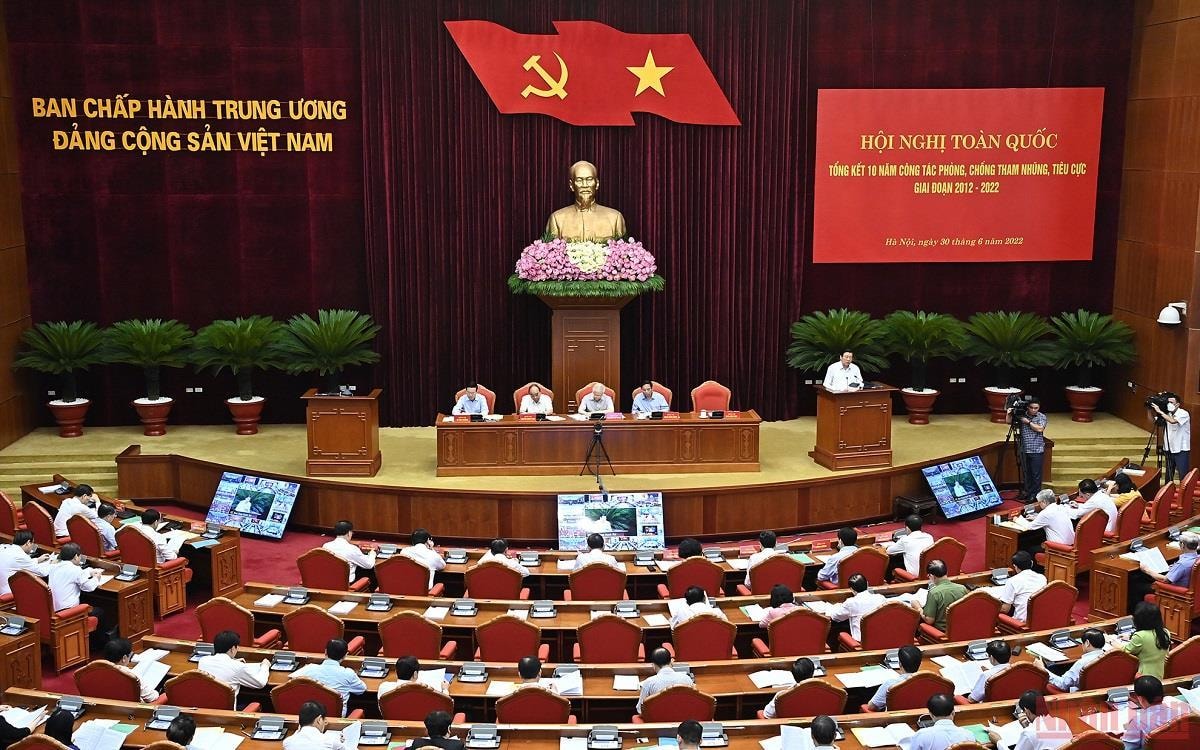 |
View of the National Conference summarizing 10 years of work in preventing and combating corruption and negativity. |
BUILDING PUBLIC SERVICE CULTURE
Speaking at the National Conference summarizing 10 years of anti-corruption and anti-negativity work in the 2012-2022 period, General Secretary Nguyen Phu Trong emphasized: “Anti-corruption solutions must be consistent with the context of the requirements for developing a socialist-oriented market economy in Vietnam and the nation’s cultural traditions; selectively absorbing foreign experience. At the same time, it is necessary to build a public service culture in each sector, agency and unit. Public service culture will ensure professionalism, responsibility, transparency and efficiency in performing tasks.”
To prevent, stop and fight against "internal invaders" and "evil enemies", in addition to building a "cage" mechanism to "lock" power, building and forming a public service culture is a fundamental, long-term solution, in line with the world's development trends and national cultural traditions.
Corruption often occurs internally, by those in positions of authority and power. Preventing and combating corruption is a struggle within each individual, in each agency, organization, unit, and locality. Therefore, building and implementing a good public service culture - the culture of those who perform public duties - will create a healthy environment where officials "cannot", "do not dare", "do not want", "do not need" to commit corruption.
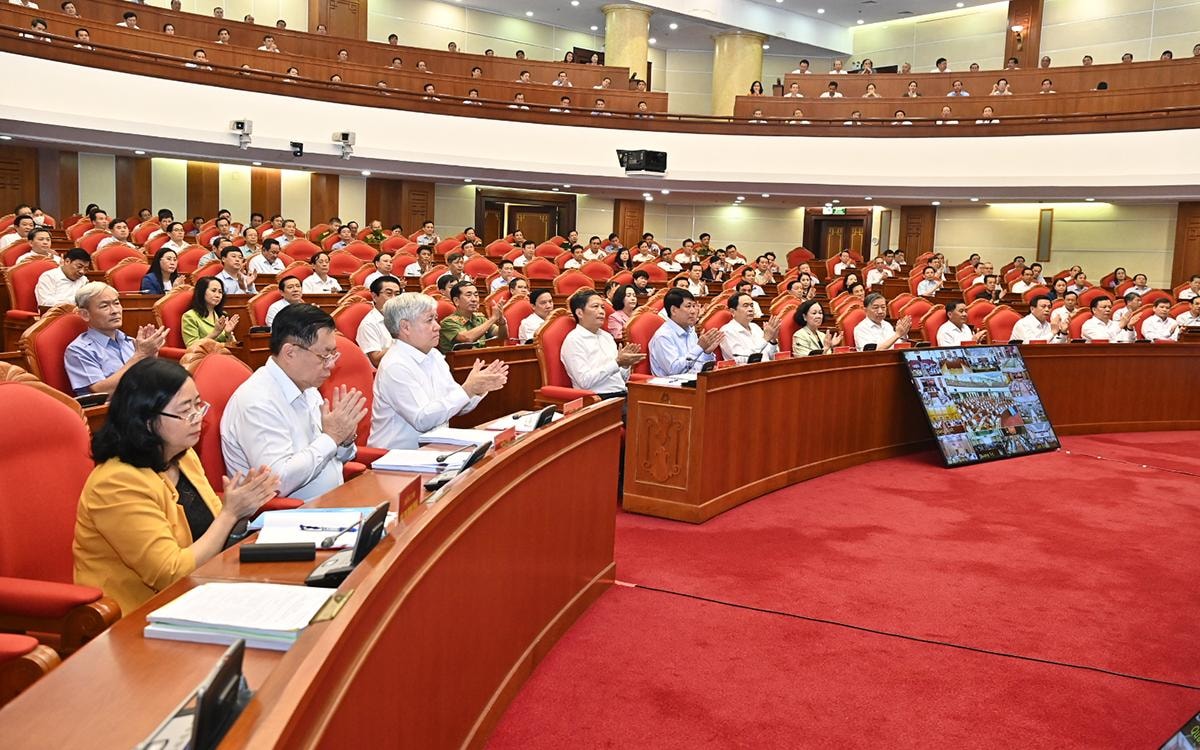 |
| Party and State leaders and delegates attended the National Conference summarizing 10 years of anti-corruption and anti-negativity work on the morning of June 30, 2022. |
Public service culture is the synthesis of good values created by many generations of cadres, civil servants and public employees (CBCCVC) to establish the position and role of public agencies in socio-economic development; to build prestige and trust between the Party, the State and the people.
Public service culture includes tangible and implicit values, vividly expressed through the spirit and working attitude; through words, behavior, ethics, lifestyle and standards of conduct of the staff.
The implicit value of public service culture is reflected in the philosophy, goals, mission, and vision of the agency or unit. As soon as the Democratic Republic of Vietnam was established, inLetter to the People's Committees of regions, provinces, districts and villagesOn October 17, 1945, President Ho Chi Minh affirmed: “Government agencies, from the whole country to the villages, are all servants of the people, meaning they are to shoulder the common work for the people, not to oppress the people as in the period under French and Japanese rule. Whatever is beneficial to the people, we must do our best. Whatever is harmful to the people, we must avoid at all costs. We must love and respect the people, then the people will love and respect us.” He emphasized the nature of the new Vietnam, which is a democratic country, all benefits are for the people, all powers belong to the people..People must truly enjoy happiness and freedom, because "if the country is independent but the people do not enjoy happiness and freedom, then independence is meaningless."
Since the birth of the Democratic Republic of Vietnam until now, those values, philosophies and noble goals have been inherited and promoted by generations of civil servants and public employees, maintaining independence and freedom, advancing towards socialism, building a socialist rule-of-law state - a state of the people, by the people and for the people, promoting the legitimate rights of the people with the motto: People know, people discuss, people do, people inspect, people supervise and people benefit.
To build a civil service culture, create the identity of public agencies, and affirm the mission of people's representatives, the contingent of civil servants and public employees through the periods has always imbued with the teachings of President Ho Chi Minh, practiced diligence, integrity, impartiality, and selflessness; maintained revolutionary courage and morality; stayed away from the evils of "illegibility", "reliance on power", "corruption", "privateness", "division", and "arrogance"; practiced the principle of democratic centralism, maintained solidarity and unanimity; regularly and seriously self-criticized and criticized, worthy of "being a truly loyal servant of the people".
President Ho Chi Minh's thoughts and viewpoints on the nature of the Democratic Republic of Vietnam and on the public ethics of cadres and party members have become sacred values that today's cadres, civil servants and public employees always strive to and persistently implement.
Culture is the good things created by humans, accepted, preserved and honored by the community; it has the function of educating, orienting and adjusting human behavior and thinking in a positive, progressive, humane direction for development. Public service culture is the written and unwritten standards and conventions implemented and operated by the team of civil servants and public employees to properly perform the duties and responsibilities assigned by the Party, State and people.
Public service culture promotes the exemplary and pioneering spirit of the heads of agencies and units. Bright examples and noble political personalities will create a positive source of inspiration and great attraction to gather the strength and solidarity of agencies and units in performing public duties. In the public service culture environment, humane and good values will create new impulses for each individual to constantly strive, improve themselves, and make great contributions to the community and society.
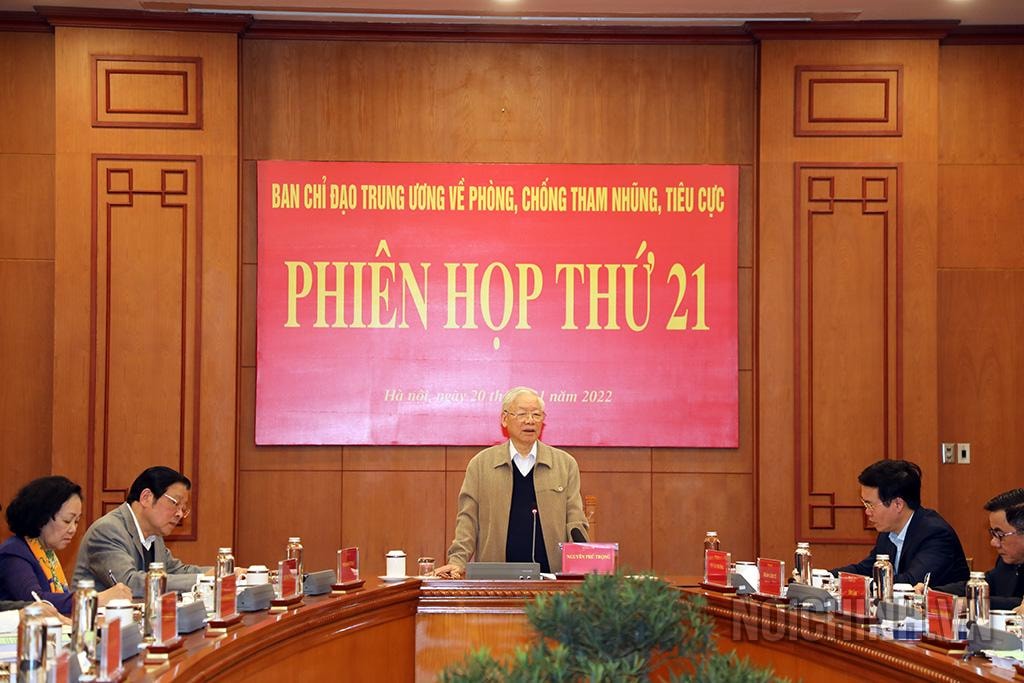 |
21st session of the Central Steering Committee on anti-corruption and negativity. |
GOOD IMPLEMENTATION OF PUBLIC SERVICE CULTURE
In recent times, under the negative impacts of the market economy, money, and fame; the rise of greed and personal desires, the instigation of relatives and hostile forces, many officials and party members with positions of power and authority, holding important positions in the leadership apparatus of the Party and the State have violated the Party's principles, committed acts that go against the interests of the community, and fallen into corruption and negativity. In particular, "the state of degradation in political ideology, ethics, and lifestyle of a large number of officials and party members has not been pushed back, and in some aspects and parts has become more sophisticated and complicated; corruption, waste, and negativity are still serious, concentrated among party members holding positions in the State apparatus".
The cases that Party committees and inspection committees at all levels have disciplined in the past 10 years with "2,740 Party organizations disciplined, more than 167,700 cadres and Party members, of which 7,390 Party members were disciplined for corruption; 170 cadres under the Central Committee's management were disciplined, of which 4 were Politburo members and former Politburo members; 29 were Central Committee members and former Central Committee members; 50 general officers in the armed forces. Since the beginning of the 13th Congress term, 50 cadres under the Central Committee's management have been disciplined (4 times higher than the 11th term and nearly half the number of high-ranking cadres disciplined in the 12th term), of which 8 were Central Committee members and former Central Committee members, and 20 general officers", sounding the alarm about the degradation of political ideology, ethics, and lifestyle of a significant number of people. cadres and party members, which results in damage to the national budget, slowing down the country's development, reducing the Party's leadership role; hurting people's feelings and reducing their trust in the Party, which is a direct threat to the survival of the Party and the regime.
The causes of the above incidents and phenomena are both objective and subjective, but the subjective cause is fundamental, due to the fading of revolutionary ideals by individuals, the degradation of political ideology, "self-evolution", "self-transformation". At the same time, it is also partly due to the lack of fighting spirit, the lack of criticism and self-criticism by agencies, organizations and collectives, and their deference and avoidance in commenting and evaluating cadres. The education, training and improvement of qualities and ethics for cadres and party members have not been done regularly, leading to the "polluted" office culture and public service culture in many places, creating favorable conditions for bad things and evil to arise and prevail.
To build and implement a good public service culture, create a healthy, scientific, humane, and honest working atmosphere and environment, and contribute to preventing corruption and negative behaviors, it is necessary to synchronously and effectively implement many solutions, in which raising awareness and sense of responsibility of each civil servant is of great significance.
Every civil servant, public employee, and public employee in performing public duties must deeply imbue President Ho Chi Minh's advice, constantly improve revolutionary ethics, eliminate individualism; practice thrift, integrity, impartiality; do everything that is beneficial to the people, avoid everything that is harmful to the people; have the spirit of respecting and loving the people, relying on the people, learning from the people, listening to the people's thoughts and aspirations to bring them an increasingly warm and happy life. Carry out well the movement to study and follow Ho Chi Minh's ideology, morality and style, in which it is necessary to carry out well the 3 contents: Studying and following Uncle Ho's example and setting an example for cadres and party members.It is necessary to handle well and harmonize the three relationships according to His instructions, which are "Self to self", "Self to others" and "Self to work", creating objectivity, fairness and integrity in performing public duties.
For the heads of agencies and units, it is necessary to well implement the spirit of setting a good example in terms of character, moral qualities, and lifestyle; have a steadfast ideology, correct viewpoints, dare to think, dare to do, dare to take responsibility, wholeheartedly serve the country and the people; have a scientific, democratic, practical leadership style, truly be the nucleus of solidarity, gathering, creating motivation and promoting collective intelligence; always uphold the principles of democratic centralism, objectivity, comprehensiveness, impartiality, openness, transparency, and accuracy. Continuously study, cultivate, practice, and cultivate revolutionary ethics, be exemplary in personality, honest, simple, straightforward, and sincere; not be corrupt, not be influenced by group interests, and not let family members or relatives take advantage of their work positions for personal gain. Seriously self-criticize and criticize, resolutely defend what is right, and resolutely fight against what is wrong.
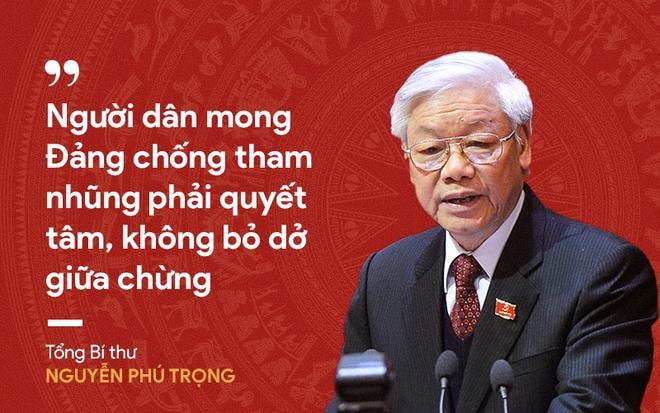 |
Each cadre and party member needs to continue to perform well.Office culture regulations at state administrative agencies(Government issued in 2007) andPublic service culture project(Government issued in 2018),Emulation movement "Cadres, civil servants, and public employees compete to practice office culture", Office smiles...Successful implementation of public service culture will contribute to forming a standard working style and behavior of civil servants; ensuring professionalism, responsibility, dynamism, transparency and efficiency in performing tasks; improving public service ethics; strengthening discipline and administrative order; preventing and combating corruption; meeting the requirements of serving the people and society.
Every civil servant must have a high sense of responsibility for his work. Be absolutely loyal to the Party and the State, protect the honor of the Fatherland and national interests; respect and serve the people. Form a beautiful culture of behavior in the workplace with specific, concise, easy-to-remember, and easy-to-implement rules and standards.
Promote the nation's fine traditional cultural values, especially the cultural quintessence in the art of governing the country of our ancestors; the good morals and qualities of traditional Vietnamese people. Pay attention to and invest in building infrastructure and office institutions in a modern, smart direction with landscapes and bright - green - clean - beautiful working spaces; modern and civilized office layout; neat and polite uniforms of civil servants and public employees, showing respect for themselves as well as respect for colleagues and people, creating a unique mark and identity of the agency or unit.
President Ho Chi Minh once said: “Culture is closely related to politics. We must make culture penetrate deeply into the national psyche, meaning that culture must correct corruption, laziness, vanity, and luxury.” Building a public service culture will guide people to the good values of truth, goodness, and beauty, creating a solid spiritual foundation for education, preventing corrupt and negative behaviors, creating breakthroughs and new strength to build a rich, prosperous, and happy Vietnam.
Building a public service culture with good values that are spread will create spiritual motivation, encouragement, motivation, and strength for each civil servant to constantly strive, contribute, and bring good things to the people. Implementing a good public service culture with mechanisms and soft power from community ethical standards and rules will help each civil servant self-regulate behavior, self-reflect, self-correct to constantly improve themselves, stay away from bad habits, and build increasingly clean and strong agencies and units.

